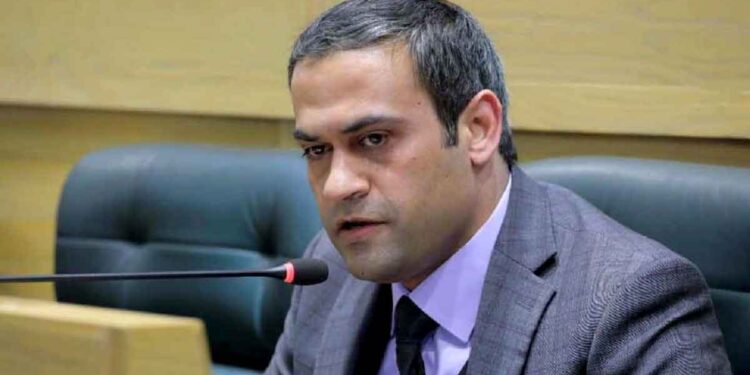Dismissed Jordanian MP Osama al-Ajarmeh’s lawyer, Ismail Al-Sawair, has said that his client’s health is “very poor.”
Al-Ajarma is on his 37th consecutive day of hunger strike in protest against his arrest, al-Sawair has said. Al-Ajarma will appear in court this Tuesday (14 September), to hear the public prosecutor’s defence.
“No prisoner has ever committed to a hunger strike for this long” in Jordan, his lawyer has said.
Al-Sawair has requested that the Marka prison administration transfer al-Ajarma to hospital, after he became unable to move or speak. He has been given nutrients, to prevent his further deterioration.
Al-Sawair has stated that the parliamentarian refuses to end the strike or take any treatment until after his release.
On Monday (13 September), Jordan’s State Security Court held an initial session to consider Ajarmah’s case, three months after his arrest following alleged statements that were described as “offensive” to Jordan’s King Abdullah II.
On 6 June, Jordan’s lower chamber of parliament, the House of Representatives, voted in favour of Ajarmah’s dismissal.
The decision followed the same house’s suspension Ajarmah’s membership due to his “abuse of the chamber, its members, and its organisation”, as the motion of suspension claimed, during his intervention regarding power outages across the country.
On 21 May, electricity was completely cut across Jordan. Distribution companies were told that this was due to a malfunction of the state electricity company.
At the time al-Ajarmeh said the outage was a “deliberate” attempt to prevent solidarity marches with Palestine against Israeli attacks on the Gaza Strip. At the time, his colleagues demanded evidence.
The House’s decision against al-Ajarmeh led to demonstrations both for and against the move. Demonstrations in his hometown Naour, southwest Amman, led to confrontations with security services.
A video of al-Ajarmeh at one such event showed him threatening the king, which led to some supporters withdrawing support. Protests declined, and his arrest was announced on 16 June.
The Economist Intelligence Unit’s annual “Democracy Index” report, issued in early February, classified Jordan as an “authoritarian country” for the year 2020, “despite holding parliamentary elections.”
As the report said, “an old idea: democracy is not simply the ballot box, even if one accepts that elections are fair.”
And, it continued, “the problem is that the Jordanian regime continues to utilise the tools of democracy as a propaganda front for the West, rather than because it either believes in or needs them.”






























